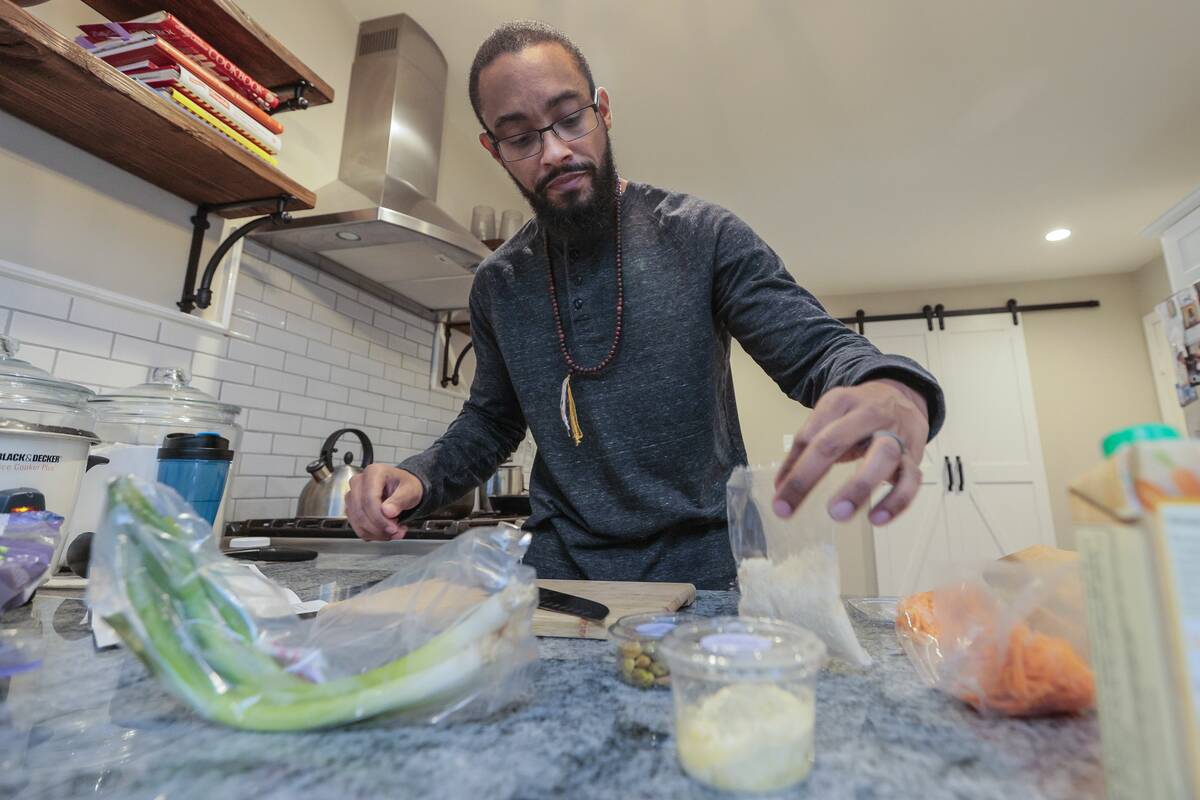Colon cancer on the rise among younger adults
When Fredrick Allen Rivers Jr. was diagnosed with colon cancer at age 31, he had never heard of anyone so young getting a disease more commonly associated with aging.
But from 1995 to 2019, colorectal cancer rates doubled among people under 55, even as the overall incidence declined, according to new data from the American Cancer Society. Adults younger than 55 accounted for about 20 percent of colorectal cancer diagnoses in 2019.
What’s more, these cancers are being diagnosed at a later stage, when they are more difficult to treat and more likely to have spread. Genetics is thought to play a role in colon cancer at any age, as well as lifestyle factors such as smoking or eating too much processed food. Researchers are still studying what causes colon cancer and what is putting younger and younger adults at risk.
“It’s alarming to see how rapidly the whole patient population is shifting younger, despite shrinking numbers in the overall population,” Rebecca Siegel, a senior scientific director at the American Cancer Society, said in a statement.
The trend underscores why the cancer society and the U.S. Preventive Services Task Force recommend beginning colon cancer screening at age 45, down from 50.
Low screening rates
“There is a clear relationship between colon cancer screening rates and the incidence of colon cancer,” said Ahmedin Jemal, a senior vice president at the American Cancer Society. “Why do young people have a higher rate? It’s squarely because their screening rates are very low.”
Colon cancer is among the most preventable and treatable types of cancer, thanks to colonoscopies and stool-based tests that are highly effective at identifying precancerous polyps. The tests are covered by most insurance.
Yet just 20 percent of adults ages 45 to 49 were up to date with colorectal cancer screening, compared with 70 percent of adults ages 50 to 75, according to the American Cancer Society’s data for 2020.
Rivers, who lives in Williamstown, New Jersey, began routine colonoscopies around his 30th birthday because he was considered at higher risk for colon cancer.
He was diagnosed with a liver disease as a teenager and needed a liver transplant in his mid-20s. Rivers also has ulcerative colitis, a gastrointestinal condition that elevated his risk.
While Rivers was accustomed to seeing doctors regularly, many men his age don’t bother going for as much as an annual physical, Jemal said.
“I wouldn’t be here right now if I had that kind of mentality,” Rivers said.
Who is at risk?
Colorectal cancer rates were 33 percent higher in men than in women across all age groups from 2015 to 2019, according to the American Cancer Society’s 2023 statistics report, released March 1.
Other key findings:
1. Colorectal cancer rates declined by about 1 percent a year in the past decade. This comes after incidence rates dropped by about 3 percent a year from 2000 to 2010.
2. Colon cancer diagnoses increased by 2 percent a year among people younger than 55.
3. Cancers that had already spread to other parts of the body at the time of diagnosis accounted for 60 percent of all diagnoses in 2019, up from a low of 52 percent in the mid-2000s.
What causes colon cancer?
As for what causes colon cancer in the first place, researchers are still figuring it out.
Family history of the disease is the strongest risk factor researchers have identified. People with a first-degree relative — a parent, sibling or child — who has been diagnosed with colorectal cancer are up to four times as likely to develop the disease, the American Cancer Society reports.
About 55 percent of colorectal cancer cases are linked to lifestyle factors, such as an unhealthy diet, insufficient physical activity, high alcohol consumption and smoking, according to the American Cancer Society report.
A similar increase in other cancers — such as breast and pancreas cancer — among younger adults may point to environmental factors that have not yet been thoroughly studied, Jemal said.
“We do wonder if there’s something else happening,” he said.
Jemal and his colleagues urge people to talk to their immediate family members to identify whether they may have a genetic risk for colon cancer and discuss with their doctor when to begin screening.
A young man’s journey
For Rivers, despite beginning regular colonoscopies years before the recommended for average-risk adults, his cancer was already advanced when diagnosed in 2012. He needed his entire colon removed.
The procedure involved two surgeries: First doctors removed the colon, and several months later, after he’d healed, they reconnected his gastrointestinal tract.
In 2019, during a routine follow-up exam, doctors found the cancer had come back, this time on his kidney. He had surgery to remove part of his left kidney.
The cancer recurrence came just as Rivers was beginning to feel like his old self.
These days, he enjoys spending time with his wife and children outdoors or cooking healthy meals — anything that allows him dwell, for a moment, on how grateful he is for his health today.
“I have my good days and bad days,” Rivers said.













